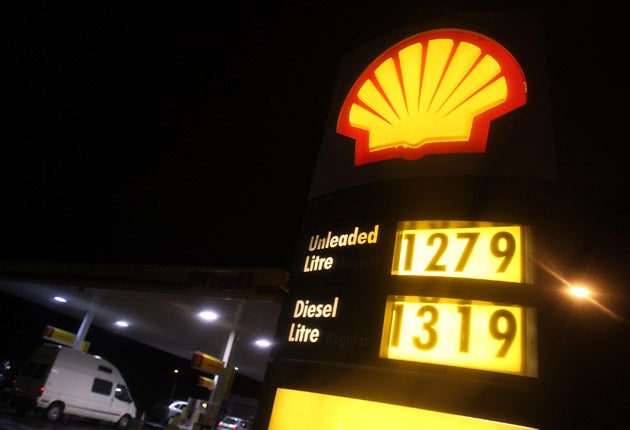David Kuo: Rising inflation? Get out of cash and into shares
Bad news for savers, as base rate stays at 0.5%

Your support helps us to tell the story
From reproductive rights to climate change to Big Tech, The Independent is on the ground when the story is developing. Whether it's investigating the financials of Elon Musk's pro-Trump PAC or producing our latest documentary, 'The A Word', which shines a light on the American women fighting for reproductive rights, we know how important it is to parse out the facts from the messaging.
At such a critical moment in US history, we need reporters on the ground. Your donation allows us to keep sending journalists to speak to both sides of the story.
The Independent is trusted by Americans across the entire political spectrum. And unlike many other quality news outlets, we choose not to lock Americans out of our reporting and analysis with paywalls. We believe quality journalism should be available to everyone, paid for by those who can afford it.
Your support makes all the difference.The Bank of England's Monetary Policy Committee has once again done nothing.
This is the 25th month in a row that interest rates have been held at 0.5 per cent. It would seem the MPC is ignoring the threat of rising inflation and is happy to pump cheap credit through the arteries of a moribund British economy.
The Bank's tactics are understandable. But its caution could lead to embedded inflation as cash-strapped consumers inevitably turn to higher wage settlements to balance overstretched household budgets. There is already evidence that private-sector pay settlements are on the rise, according to Income Data Services. The latest private-sector pay survey shows pay rises jumping from 2.2 per cent to 2.8 per cent in the three months to January.
Admittedly, pay settlements are still running significantly below the Government's preferred measure of inflation, the Consumer Prices Index (CPI). However, there is little room for complacency given that these settlements come when almost 2.5 million people are out of work and unemployment numbers are expected to rise further.
This is not supposed to happen. Workers are meant to be quaking in their boots for fear that any request for higher wages may be met with a swift showing of the door. However, the ability to bargain for higher pay from a position of weakness raises questions as to what might happen when the economy recovers. Stubborn inflation could turn into spiralling prices as wage demands feed into higher inflation, which in turn feeds into higher wage demands.
Unlike the Bank of England, which appears relaxed about inflation, almost half of the G20 economies have lifted central-bank rates to levels similar to domestic inflation rates. These include Indonesia, Mexico and China, where base rates are on par with the rate of inflation. In fact, the average rate of inflation among G20 countries is 4.3 per cent and the average central-bank rate is 4 per cent, which is what you would expect if the rise in the cost of living is to be kept in check.
Some G20 countries have gone a lot further than this. In Brazil, where the rate of inflation is 6 per cent, the central bank has hiked rates to 11.25 per cent – 1.8 times the CPI. By contrast, base rate in the UK is eight times lower than the CPI. Similarly, in the US, rates are some 6.5 times below the rate of inflation, which would suggest that both the US and the UK are comfortable with the outlook for inflation.
It can be argued that the current UK rate of inflation of 4 per cent is hardly disastrous. The rates of inflation in countries such as India and Argentina are much worse – 9.3 per cent and 10.6 per cent, respectively. But even at our modest rate of shrinkage, £100 would only be worth £45 in 20 years. Consequently, it is more important than ever to protect the spending power of our money by investing in growth assets such as shares. Using historic growth rates of around 8.3 per cent, the same £100 could grow to £492 over the same period.
For most people, investing in the UK market through a low-cost index tracker is probably the best way to get exposure to equities. Some, though, may argue that a greater weighting towards faster growing economies, such as Asia and emerging markets, could generate higher returns. They have a point, but it is important to consider exchange-rate risk and costly fund fees if you do not use low-cost index funds.
What is paramount in times of rising inflation is to avoid leaving long-term savings in cash or near-cash products. These include government bonds and savings accounts. For cash savings to make any financial sense, a basic-rate taxpayer would need to find an account paying at least 5 per cent. Higher-rate taxpayers would need to find savings products paying over 6.6 per cent just to keep pace with inflation.
These kinds of interest rates do not exist in the UK cash market, but they do in the stock market. There, it is possible to judiciously construct a basket of high-yielding shares that can produce a generous income today and also sustainable dividend growth in the future.
David Kuo is a director of fool.co.uk
Join our commenting forum
Join thought-provoking conversations, follow other Independent readers and see their replies
Comments